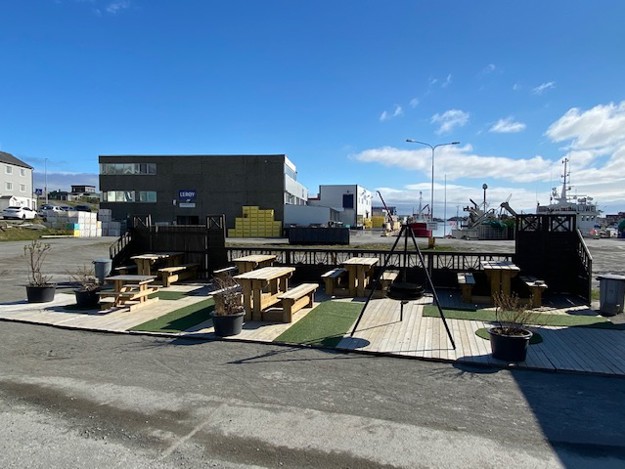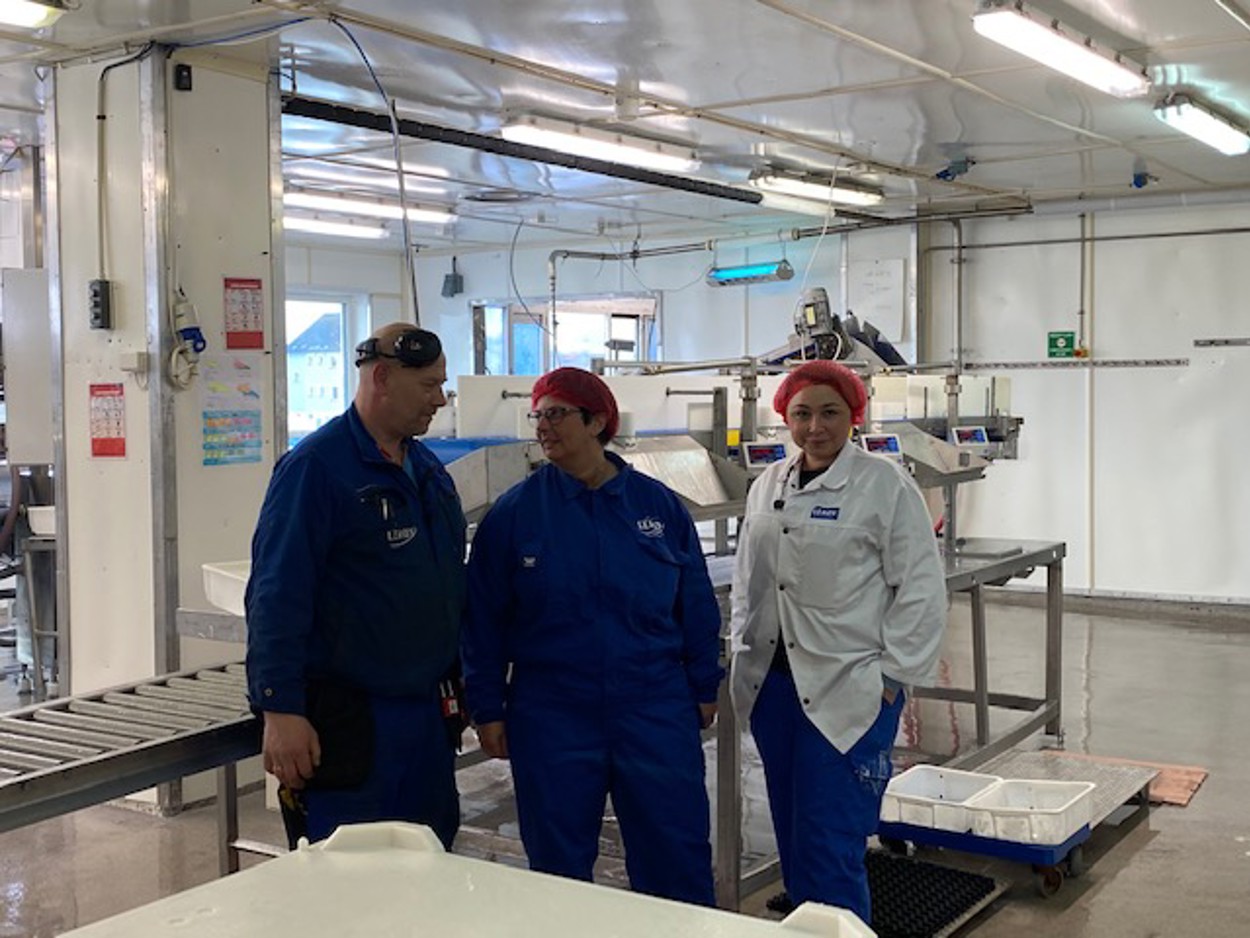The Norway Seafoods factory in Berlevåg is one of several Lerøy factories in Northern Norway, but there is one thing in particular that distinguishes it from the rest.
Berlevåg is a small village in Northern Norway with around 900 inhabitants. Lerøy Norway Seafoods’ factory in Berlevåg lies right by the quay, making it easily accessible to fishers. It buys all kinds of fish and king crab, produces fresh and frozen fillets, and is also home to a technical department. What distinguishes this factory from most others is that absolutely all of its energy consumption comes from renewable sources: water and wind.
“Lerøy Berlevåg is entirely supplied by renewable energy. Even all of our forklift trucks and internal means of transport run on electricity and renewable energy”, says the outgoing factory manager Frank Arne Hansen.
Norway’s most productive wind farm
Berlevåg has excellent wind conditions, which means that the Raggovidda wind farm is the most productive one in Norway. Since being commissioned in 2014, no Norwegian wind turbines have managed to generate more electricity per megawatt installed, but the grid is a limiting factor. That’s why work is now being done to fully exploit the wind resource by converting it into hydrogen, through the EU project Haeolus. Hydrogen is an energy carrier, so it can be used to store energy during periods of high winds, when the grid is overloaded. Once produced, it can either be used locally or be transported elsewhere.
“We also have a hydroelectric power station in the municipality”, says Frank Arne.
Between them, the wind farm and hydropower plant supply the factory’s energy. The only fossil fuels required are the ones used by the fishers who supply fish and king crab to the factory.
“The fishing grounds in Berlevåg are very close to the coast, so in terms of energy consumption they are some of the best in the whole of Norway, and perhaps in most of the world”, he says.
“The boats take less than half an hour to sail from the quay to the fishing grounds for much of the year, whereas in other places it is common to travel for several hours”, explains Frank Arne.

Vital to the community
The fishing industry is the most important local industry. Depending on the season, the factory employs between 35 and 42 people. Lerøy Berlevåg is by some distance the biggest company and private sector employer in the municipality, so it is absolutely vital to the community. In 2020, it was estimated that the business provided 32 full-time equivalent jobs. The factory aims to be available to buy seafood day and night, seven days a week, and they are always on the lookout for new fishers who prioritise quality.
“We have our own fisherman’s cottage and baiting hut which they can borrow”, says Frank Arne.
The cottage provides accommodation, while the baiting hut allows the fishers to bait their lines with pieces of herring and mackerel indoors. In Norway, this has become less common in recent years, and Frank Arne explains that many competitors and other companies now do this in the Baltic states, rather than locally.
“They drive half way across Europe, bait the line, and then drive it back to the coastal communities in Northern Norway. We’re not convinced by the environmental impact and carbon footprint of this, compared with getting the job done locally. This culture and knowledge is in the process of disappearing from the local area”, he says.
“The jobs also leave the country, which reduces the services and infrastructure available in Berlevåg”, says Ami Davidsen, the new factory manager.

Although Lerøy has a global outlook, its local ties are an essential part of the company. Lerøy recommends that services should be procured locally where possible, for environmental reasons, in order to give something back to the local community and to support local business communities. In 2020, the Lerøy Seafood Group bought goods and services worth NOK 8 million from 22 different companies in the municipality of Berlevåg. The total value added generated by Lerøy’s operations in Berlevåg Municipality came to NOK 626 million in 2020.
“Lerøy is undoubtedly the biggest business here”, says Frank Arne.
“As part of the Lerøy Group, our four values are openness, honesty, responsibility and creativity. We adhere to and believe in those values, and we are proud of them”, concludes Ami.

